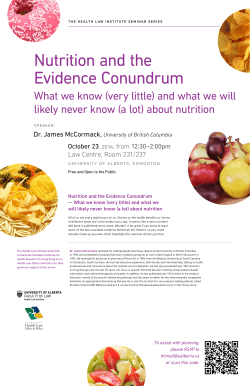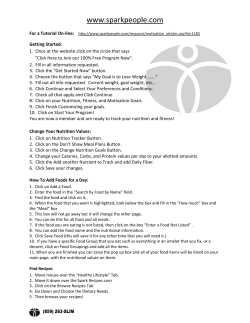
TERMS OF REFERENCE FORMAT
TERMS OF REFERENCE FORMAT (FOR INDIVIDUAL CONSULTANTS AND CONTRACTORS) UNICEF-BCO : TERMS OF REFERENCE (TOR) Title of the Assignment: Building capacity of local level actors in mainstreaming, planning, and monitoring for nutrition through ‘District Nutrition Support Officers’ (DNSO) Position: Nutrition Consultant Number of position: 43 Duration: 11 months Proposed Level: NO-A Duty Stations (Districts): Sylhet, Maulvibazar, Habiganj, Sylhet City, Sunamganj, Khulna, Satkhira, Narail, Chuadanga, Khulna City, Bargerhat, Barisal, Bhola, Pirojpur, Jhalokathi, Patuakhali, Barguna, Rangpur, Nilphimari, Pabna, Nawabganj, Lalmonirhat, Panchagarth, Gaibandha, Kurigram, Rangamati, Khagrachari, Chittagong city, Bramhmanbaria, Noakhali, Comilla, Bandarban, Cox’s Bazaar, Jamalpur, Mymensingh, Sherpur, Shariatpur, Faridpur, Tangail, Sirajganj, Dhaka city, Kishorganj, Netrakona Background: In 2011, the Government of Bangladesh commenced mainstreaming of nutrition services in the Ministry of Health and Family Welfare. Mainstreaming requires very substantial support, specifically in critical areas of (i) human resource capacity development in nutrition, (ii) planning and monitoring of supplies, (iii) integration of nutrition in the health management information system to guide monitoring, (iv) establishment and implementation of standards and guidelines for all technical areas of intervention etc. UNICEF supports mainstreaming through direct support to a number of area-based programmes which provide opportunities to coordinate interventions, develop tools and models and to test components of the new system while at the same time expediting direct assistance to the most vulnerable populations in the country. At national level and through six zonal offices, UNICEF supports the planning, budgeting, procurement and coordination required for rapid scale up of a full package of direct nutrition interventions (DNIs) throughout the country. However, UNICEF recently supported a capacity assessment in Bangladesh which identified gaps in human resources and capacity related to nutrition at district and sub-district levels for the implementation of the HPNSDP’s National Nutrition Services Operational Plan (NNS-OP 2011-2016) and limited mainstreaming of nutrition in other sectors. IPHN/NNS requires manpower and support at sub-national levels (district and upazila) which can actively engage, support and follow-up with relevant health and family planning authorities and service providers, to ensure nutrition is mainstreamed at all levels and aspects – including planning, budgeting, supply management, training, implementation, coordination and monitoring on a day-to-day basis. A total of 43 districts in Bangladesh have been identified to receive DNSO support until 2017 based on their high burden of stunting as well as Child Deprivation Index scores. UNICEF is currently recruiting qualified nationals to constitute a global resource pool of DNSOs for Bangladesh for these 43 districts. Purpose of Assignment: The purpose of this ToR is to provide human resources / technical support to local level government actors in mainstreaming nutrition into Health and other relevant sectors (Agriculture/Fisheries/Food/Livestock, WASH, Education, Protection, etc.) at sub-national levels, with particular emphasis on coordination, analysis, planning, technical support, capacity building, establishment and monitoring of implementation and coverage targets, etc. Page 1 of 5 The proposed technical support will allow both IPHN/NNS and UNICEF to expand its sub-national support and is expected to lead to increased resource allocation to fund existing plans and targets. As nutrition mainstreaming is relatively new in the country and the NNS/OP is still in its early phase of implementation, district level technical support will present an opportunity to accelerate nutrition mainstreaming and pilot an innovative human resource based support approach for nutrition that could potentially be scaled-up and supported by the MOHFW and HPNSDP development partners in the longer-term. Indeed, the Bangladesh approach to support for EPI using District Immunization Medical Officers (DIMO) shows how this model of support has drastically improved quality and coverage of EPI interventions in a short period. Lessons learned from the DIMO model will be drawn on to guide the DNSO strategy for nutrition mainstreaming into the health and other sectors. Through support to mapping, coordination, target-setting, micro-planning, monitoring, bottle-neck analysis, on job training etc., it is expected that the quality and coverage of the full set of Direct Nutrition Interventions (DNIs) will increase and reach set targets, and that nutrition sensitive interventions are specifically included in district planning across relevant sectors. Ultimately, the increased coverage of essential nutrition interventions will be a key result expected from the support for DNSOs. DNSOs are expected to achieve this by working with local authorities and actors to identify and overcome bottlenecks, through improved planning, coordination, quality service delivery and monitoring of nutrition at district and sub-district levels. Operational Modality District Nutrition Support Officers (DNSO) will be hired on a consultancy contract with UNICEF, and will work closely with local Government authorities, UNICEF Zonal Nutrition Officers and partners in each of their targeted districts. DNSOs will also work with relevant actors in Health, Agriculture, Education, Social Protection sectors etc. to build capacity and systems for increased effective coverage of both nutrition specific and nutrition sensitive interventions. DNSOs will be provided with travel and communication allowances to allow mobility, extending to all upazilas within their district. DNSOs will report directly to Chief, Nutrition Section and day to day support will be provided by the designated Nutrition Specialist. DNSOs will also work as a team with UNICEF zonal nutrition officers and receive support in their respective Division. Monthly Work and Travel plans will be developed with respective UNICEF Zonal Nutrition Officer and approved by the Chief, Nutrition Section. DNSOs are expected to set up an office space at convenience within duty station, although much of their work will involve travelling to the field for monitoring and providing on the job training and mentoring to service providers. With an ultimate objective of developing sustainable systems and capacities for nutrition, the DNSO will serve as a bridge between the central and sub-national levels by ensuring that national nutrition policies, guidelines and plans are effectively understood, planned, implemented and monitored, and that nutrition is more ‘visible’ on the ground. Key duties and tasks: 1 Analysis and Planning Support district and upazila level health and family planning authorities to collect, analyse and report on standard nutrition indicators and to record progress towards targets (in line with NNS OP and standard nutrition indicators integrated into HMIS) Support development of District and local level sector plans and tools for nutrition (e.g. nutrition district plans with targets, supply forecasting, tracking and gap analysis tools, etc.) Work with partners to identify critical bottlenecks in existing systems and identify means through which corrective actions can be implemented (including those requiring support from outside the district) Analyse and document evolving capacities, needs and resources with regards to mainstreaming of nutrition and improving effective coverage of essential nutrition interventions. Prepare technical reports on local nutrition situation analysis for UNICEF Page 2 of 5 In collaboration with UNICEF Planning and Monitoring officers, ensure that nutrition is taken up in Convergence Coordination meetings at district, upazila and union levels. 2 Coordination Support integration of nutrition into monthly routine coordination and planning meetings in Health and Food/Agriculture sectors. Participate in meetings, provide technical support to agenda setting and mobilise participation of other partners. Facilitate multi-sectoral coordination at district level (with key relevant sectors), including identify priority nutrition sensitive interventions for scale-up in the district context. Support updated nutrition partner mapping every quarter. Facilitate joint quarterly field visit with partners in nutrition. Support UNICEF Zonal Nutrition Officers to coordinate with sectoral partners at local level for mainstreaming of nutrition in health sector’s relevant Operational Plans (other than NNS). Document lessons learned and best practices and provide feedback and dissemination in relevant coordination and review meetings 3. Monitoring and information management Support monitoring of effective coverage of DNIs with authorities and implementing partners to quickly identify those who are not benefitting from support and address bottlenecks Strengthen the capacity of supervisors and frontline workers in nutrition information management (data collection, analysis and reporting) as per HMIS and MIS-FP system and tools (according to standard nutrition indicators). Conduct quality and accuracy checks in collaboration with local supervisors on health and family planning reports with regards to nutrition Ensure nutrition information and progress is regularly available and disseminated in a user-friendly manner to service providers and decision makers in the district. Facilitate feedback from the ‘bottom up’ so that national strategies and targets are informed by practice and the reality on the ground, by providing inputs and regular reports. Develop and implement a local action plan to address bottlenecks together with partners. 4 Technical support Provide mentoring and on-the-job training support to ensure health and family planning service providers are providing full set of direct nutrition interventions according to defined standards and norms. Support district authorities and mid-level managers in developing and implementing comprehensive nutrition capacity development plans, with appropriate tools, based on identified needs Facilitate management and follow-up of capacity building and training events, including post-training supervision in collaboration with local authorities and partners Provide technical assistance to district and sub-district managers in communication and social mobilisation activities around nutrition to address demand side barriers and bottlenecks Conduct joint visits routinely with authorities and partners also from other appropriate sectors Provide technical support to district authorities during emergency situations like Flood, Cyclone or any other natural disasters, under guidance of national Nutrition Cluster Page 3 of 5 Each month, DNSOs will need to submit the following as per standard templates: (1) Monthly Monitoring Report of indicators, (2) Monthly Work and Travel Accomplishment Report, (3) Monthly Work and Travel Plan for next month, and (4) Field visit reports with an action plan for implementation of recommendations. 3. Estimated Budget as per Work Plan and Funding Source: Detailed budget includes a monthly payment for deliverables plus allowances to cover transport, DSA, communications, stationery and expenditure on IT equipment. (Separate detailed budget attached.) 4. Indicative assignment dates: Total 11 months from the date of commencement (1 February 2015 to 31 December 2015) 6. Description of assignment: Tasks 1. Assessment and planning to build capacities of local level actors in nutrition mainstreaming, including identifying gaps in supplies, systems and implementing an action plan to address them 2. Collaborate with local level authorities and managers in key sectors to monitor standard nutrition indicators and provide on job training and monitoring in nutrition for service providers 3. Strengthen capacity of health and relevant sector managers in planning for nutrition (indicators, targets, supplies) and monitoring, including bottleneck analysis, identification and implementation of corrective action 4. Support local level actors in mainstreaming nutrition (planning, monitoring, address bottlenecks) and document lessons learned, best practices and formulate recommendations in collaboration with partners End Product/deliverables 1 Time frame District Nutrition Equity Profile Coordination forum for nutrition set-up District Nutrition Partner Mapping (3W) District Nutrition Seasonal Food Calendar District Nutrition Job Aid/Tool Mapping Nutrition coordination meeting District Nutrition Gap Analysis with Action Plan (for supplies, HR-capacity, monitoring gaps) Estimated coverage levels for direct nutrition interventions with district targets set in agreement with local partners Nutrition coordination meeting Priority nutrition sensitive interventions for scale-up identified with local partners Estimated coverage levels for direct nutrition interventions with district targets set in agreement with local partners Bottleneck analysis Best practices and lessons learned Month 1 Payment Installment1 1st payment Month 2 2nd payment Month 3 3rd payment Month 4 4th payment Month 5 5th payment Month 6 6th payment Updated nutrition planning and monitoring plans and tools (as specified above) Nutrition coordination meeting Progress report on scale-up of nutrition sensitive actions Month 7 7th payment Month 8 8th payment Skills based assessment of supervisors and frontline workers who have been trained on nutrition. Month 9 9th payment Monthly payment instalment should be 9.09% of total contracted amount for the period of 11 Months Page 4 of 5 Month 10 10th payment Estimated coverage levels for direct nutrition interventions with district targets set in agreement with local partners Bottleneck analysis Month 11 11th payment Handover Note Best practices report including additional case studies Key recommendations and way forward with local health and other sector authorities 7. Qualifications or specialized knowledge/experience required for the assignment: University degree in Nutrition, Public Health or Food Sciences At least 2-4 years work experience in nutrition and public health required Demonstrated strong competencies in drive for results, communication and working with people Knowledge of the local health system an asset Fluent in Bangla and English (oral and written) National of Bangladesh Willingness to locate to district of assignment and to travel frequently, including hard to reach and remote areas 8. Application Procedure Application should be submitted with an updated CV, a completed UN Personal History Form (P-11 Form) and copies of the latest two Performance Evaluation Reports (PERs) on or before the closing date(12 November 2014) to the Chief, Human Resources Section, via email to: hrbangladesh@unicef.org Page 5 of 5
© Copyright 2025









